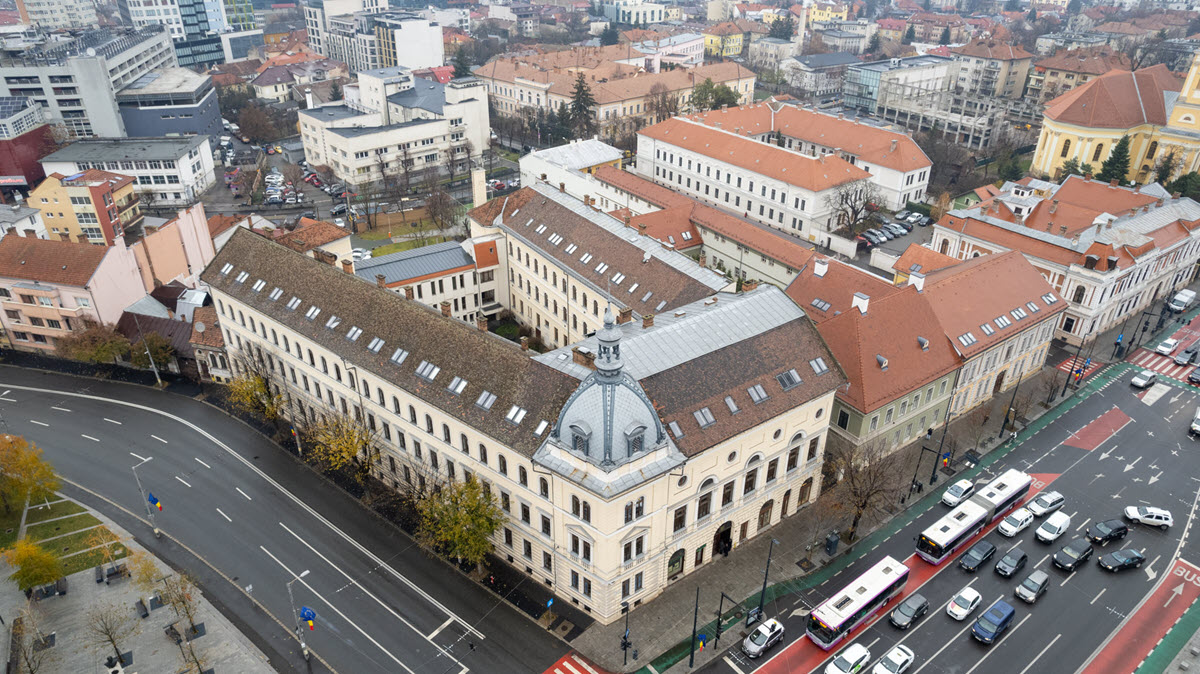COMENIUS conference 2025
The next COMENIUS conference will take place in Spring 2025 (delayed) at the Protestant Theological Institute in Cluj/Koloszvar, Rumania. Every two years, Comenius holds a conference, either in the Netherlands/Belgium or in one of the participating Central/Eastern European countries. The theme in 2025 is ‘Theology and Philosophy between Revelation and Contextual Challenge’.
XIII COMENIUS CONFERENCE – CLUJ/KOLOSZVAR, RUMANIA
In this Thirteenth COMENIUS conference at the Protestant Theological Institute in Cluj/Koloszvar, Rumania, we focus on this specific position of theology (and philosophy of religion) ‘between’ the two dimensions and how theology/philosophy of religion relate these two to each other. What are the models that we find? What are characteristic traits of the conversation?
Theology and Philosophy between Revelation and Contextual Challenges: Sources, Beliefs and Practices
Theology, conceived as an interdisciplinary discipline, finds itself between revelation as it has been articulated in Scripture and Christian traditions on the one hand. And contextual, cultural, societal and ecclesial challenges on the other hand. This position ‘in between’ leads to a number of questions. To what extent and in what manner is theology in its sources, beliefs and practices, determined by revelation and (Scripture and) tradition? And to what extent is it and in what manner is it influenced by contexts? To be more specific, how do contextual challenges influence or even transform theological reflection?
And the other way around, how has theology responded to cultural and/or societal developments? Locally and worldwide, in the present and throughout the ages? And how can (or: could) theology (or theologies) in different geographical contexts, such as North-Western European countries or Central European countries, have a distinct and/or critical, prophetic voice with regard to such developments? As for philosophy of religion, a comparable position ‘between’ transcendence and/or (contextual constructions of or conceptual interpretations) of societal and cultural developments can be posited…
Rapid Changes
Our cultures and societies are changing rapidly:
- With regard to current cultural developments, we may think of a growing influence of postmodern, relativistic worldviews. The rapid developments in social media and artificial intelligence. The huge impact of technology. A dominant immanent frame (‘buffered self…’);
- With regard to current socio-political developments, we mention the war that Russia leads against Ukraine. Increasing polarization in a large number of countries. The growth of populism. We also mention climate change, and the refugee crisis with its restraints on hospitality;
- With regard to current demographic change, we can think of migration, urbanization, and gentrification;
- With regard to current ecclesial developments, we can think of the rapid secularization in Western societies. But also of new, emerging and growing faith communities, such as the rapid growth of the Pentecostal movement.
Consequences of rapid changes
What are the consequences of such often rapid changes – and the concerns that they may raise? For biblical, historical, systematic, ethical, philosophical, and practical theological reflection? And, the other way around, how can theology, conceived in this interdisciplinary way, and philosophy (critically) possibly influence these contextual developments? How have they done so in the past, in different historic constellations or in different geographical contexts? The position ‘in between’ may sometimes lead, or has led in the past, to stimulating, confirming or legitimizing what is going on in a specific context. But theology/philosophy can also provide new interpretations, orientations and critique.
Call for papers
Possible contributions in the COMENIUS-conference are:
- From the field of biblical theology (OT/NT). In specific case studies of contextual challenges, focus on one or more different models of relating theological conceptualizations to the wider religious, cultural, ideological and political context. For example polemics; parallel or dual realities; critique);
- From the field of church history. In specific case studies of contextual challenges, focus on one or more different models of the relationship between church and culture, between theology and philosophy, between church and religiosity; between church and state;
- From the field of systematic theology/dogmatics. In specific case studies of contextual challenges,
- focus on one or more different models for translation, contextualization; apologetic speech; truth claims.
- From the field of intercultural theology. In specific case studies of contextual and intercultural challenges and models of theology, focus on one or more models for inculturation and appropriation in various contexts (how) can intercultural conversations be fruitful and constructive for participants from various contexts; questions of different rationalities, buffered and porous self, catholicity and local relevance.
- From the field of theological ethics. In specific case studies of contextual challenges, focus on one or more different models for relating Christian ethics to secular or humanistic ethics; limits, unsurpassable boundaries.
- From the field of practical (empirical) theology. In specific case studies of contextual challenges, focus on one or more different models of relating the theological and empirical dimension; the role of normativity; the role of religious experience.
- From the field of philosophy of religion. In specific case studies of contextual challenges, focus on one or more different models of relating the transcendent and the dimension of empirical reality (cf. ‘das Absolute und die Geschichte’).
- From the field of ecclesiology. In specific case studies of contextual challenges, focus on one or more different models of relating ecclesiological ideals to the ‘real church’.
Requirements for proposals
Proposals need to consist of 250 words maximum and need to explicitly address the overall conference theme. Albeit from the specific disciplinary field.
Please provide us with your name, email-address, affiliation, country, phone-number.
Deadline: cancelled.
Practical Information We will post practical information about participation, fees and travel plans later. Are you interested in participation and want to receive updates? You can already send a letter to the International Office: international@tukampen.nl.
